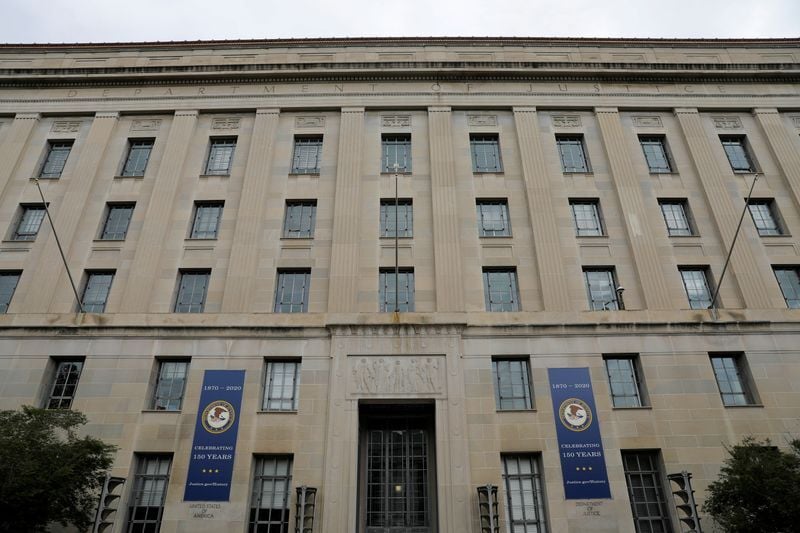DOJ files amended complaint against Colorado and Denver over sanctuary policies
The U.S. Department of Justice has filed an amended complaint against the state of Colorado and the city of Denver over sanctuary policies.
The lawsuit was initially filed in May, but the amended complaint, filed last Friday, also targets the lawsuit filed last week by Attorney General Phil Weiser against a Mesa County deputy sheriff.
The Weiser lawsuit alleges Deputy Alexander Zwinck shared information with Immigration and Customs Enforcement about a 19-year-old nursing student who was the subject of a traffic stop.
The student was later picked up by ICE and detained for two weeks and released on bond.
The Weiser lawsuit claims Zwinck broke Colorado laws that forbid Colorado state and local government employees from cooperating or sharing information about undocumented immigrants with ICE.
“State law specifies that Colorado law enforcement officers are dedicated to enforcing Colorado law and do not do the work of the federal government to enforce immigration law,” Weiser said in a statement on July 22.
“In this case, the driver was detained by immigration authorities because of actions by Colorado law enforcement despite the absence of any criminal activity on her part,” Weiser’s statement said. “Her detention for over two weeks is directly due to this violation of Colorado’s laws. Because of this action, we are making clear that Colorado law enforcement’s role is to advance public safety, not take on the responsibility of doing the work of federal immigration enforcement.”
The amended federal lawsuit targets House Bill 19-1124, Senate Bill 21-131, HB 23-1100, SB 25-276; Denver Executive Order No. 142 and Denver Ordinance No. 940-17.
The 2017 Denver ordinance says no city employee shall “use any city funds or resources to assist in the enforcement of federal immigration laws.”
The 2017 executive order, issued by then-Mayor Michael Hancock, instructed all city agencies, including law enforcement departments, to comply with the Public Safety Enforcement Priorities Act’s express prohibition on “[a]ssisting or cooperating in one’s official capacity with any investigation, detention, or arrest procedures relating to alleged violations of the civil provisions of federal immigration laws,” the lawsuit said.
HB 19-1124 prohibits a law enforcement officer from arresting or detaining an individual solely based on a civil immigration detainer and prohibits a probation officer or probation department employee from providing an individual’s personal information to federal immigration authorities. The federal lawsuit said the law “imposes strict informational and access limits upon federal immigration authorities” and “hampers local law enforcement’s ability to arrange interviews between federal immigration authorities and inmates by imposing onerous pre- and post-requisites to the interview.”
SB21-131 blocks employees from providing personally identifiable information to immigration enforcement without a warrant or as part of a criminal investigation. Similarly, SB 25-276 imposed the same restrictions on local government employees as well as judicial and legislative employees.
“The law doubled down on Colorado’s already radical sanctuary policies, further expanding its prohibitions on state and local employees cooperating with federal immigration authorities and hampering the Executive from enforcing immigration law in Colorado,” the lawsuit stated.
Both laws were cited in a lawsuit filed by Scott Moss, a deputy director for the Colorado Department of Labor and Employment, who sued the state over a Homeland Security request for information on 35 individuals. A Denver District Court judge issued a preliminary injunction against the state, although other state agencies have cooperated with those requests.
The federal lawsuit noted that before SB 21-131, Colorado Division of Motor Vehicles staff “helped ICE monitor, locate, and in some cases, detain illegal aliens,” under a 2013 state law that allowed them to apply for driver’s licenses.
“State Representative Serena Gonzales-Gutierre [sic] stated that the Senate Bill 21-131 was intended to address ‘that foundation of trust that has been broken here in Colorado because of the interactions that we have seen between ICE and state departments such as the DMV,'” the lawsuit noted.
HB 23-1100 blocks state and local governments from engaging in agreements with ICE over detention of undocumented immigrants. One provision of the bill prohibits the sale of government-owned property to establish an immigration detention facility that would be owned or managed by a private entity.
At least six sites in Colorado are being looked at as potential detention facilities, but all of them are privately owned, according to Colorado Public Radio.
The lawsuit noted that having just one ICE immigration detention facility, located in Aurora, poses risks because ICE’s Denver field office covers both Colorado and Wyoming, and “the federal government can no longer temporarily house detainees in county detention facilities.”
Having just one facility also forces immigration officers to travel long distances, even at late hours and in poor weather conditions, the lawsuit claimed. “As a result, federal immigration authorities have to release individuals that it otherwise would detain or incur significant transport expenses that it would not have incurred” before the 2023 law.
The defendants named in the lawsuit are the governor, attorney general, Denver City Council, Denver Mayor Mike Johnston, the City and County of Denver, the Denver Sheriff’s Department, and Denver Sheriff Elias Diggins.





